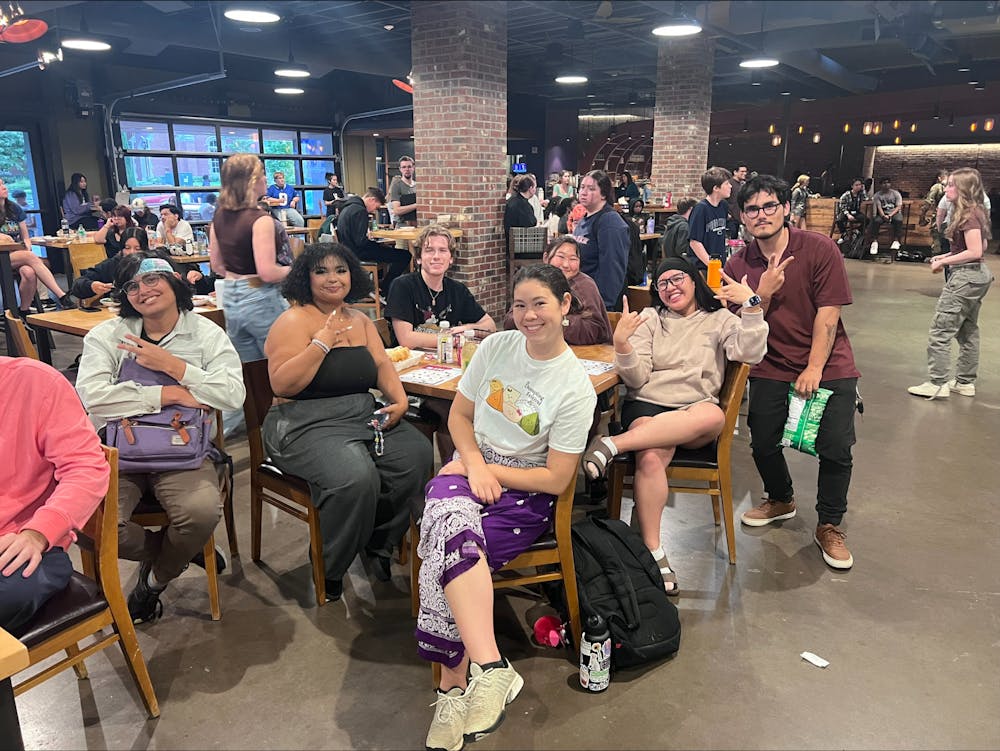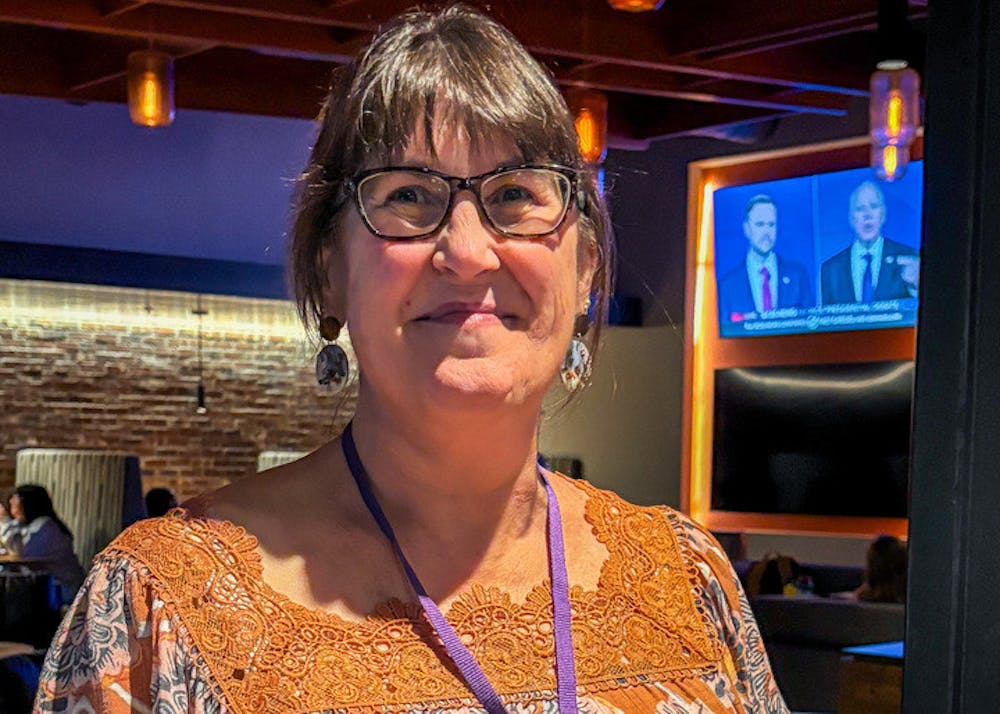As political tensions rise ahead of the election, the University of Portland has taken steps to promote constructive dialogue on campus by appointing Anne Santiago as the new Dundon-Berchtold Faculty Fellow for Constructive Dialogue.
Santiago, an associate professor and the previous chair of the Department of Political Science and Global Affairs, was appointed this fall to lead initiatives aimed at fostering respectful conversations on controversial topics. Santiago’s background as a conflict management coordinator in post-genocide Rwanda has prepared her to guide students through navigating divisive issues.
In her new role, which is supported by the Dundon-Berchtold Institute for Moral Formation & Applied Ethics, she will create opportunities for students to engage in respectful, meaningful dialogue on polarizing topics like the upcoming election and global conflicts, including the Israeli-Palestinian conflict.
“The only thing with constructive dialogue is that we have to be willing to listen without judgment,” Santiago said. “And that's a super hard thing to do.”
Santiago’s appointment comes as many campuses across the country are recovering from protests related to the Israel-Hamas war.
Although UP has not experienced protests at this level, the administration is working to prevent such events. Santiago will lead programs such as structured gatherings, collaborative events with student organizations like BridgeUP and classroom discussions focused on developing dialogue skills.
Santiago’s work is aimed at ensuring UP remains a place where students can refine their understanding of difficult issues through civil discourse.
According to Daniel McGinty, director of Dundon-Berchtold Institute for Moral Formation & Applied Ethics, challenging conversations and fostering constructive communication are essential components to a college education.
“Universities are meant to be places for dialogue and conversation, to test the things that you think, to test the things that you believe, and to refine your understanding about things,” McGinty said.
Santiago’s new role aligns with this mission. As part of her effort to promote constructive dialogue, she integrates it into her "Democracy and Diversity" class, where students break into small groups to practice civil discussions.
Outside the classroom, she plans to create additional programs and events in partnership with the athletic department and student clubs. Santiago welcomes student input to shape these initiatives.
“My pitch to students is mostly about, ‘How do you want to go forward in the world?’” Santiago said.
Santiago has a three-year appointment in this role. In it, she aims to make UP a campus known for fostering respectful and peaceful conversations.

Group of students watch the presidential debate in the Pilot House on Sept. 10. Photo courtesy of Emma Beadle.
“I would love [for UP] to be known as the campus where you know you can really learn the skills for dialoguing across differences,” Santiago said.
Santiago has already collaborated with BridgeUP and VoteUP, hosting presidential and vice-presidential debate watch parties at the Pilot House. During the events, Santiago walked around, conversing with students and listening to their reflections.
A presidential election watch party is also planned to take place in the Pilot House, with both students and faculty encouraged to attend. According to Emma Beadle, president of BridgeUP, the event aligns with the group’s mission of having constructive discussions.
“If you want to stick around to have those conversations, Bridge is a place where you can continue that engagement,” Beadle said.
The day after the election, from 2:40-4:00 p.m. in the Brian Doyle Auditorium, Santiago will open her regularly scheduled class to the entire student body to discuss post-election thoughts. Later that evening, another election-related event will start at 4:30 p.m. in the Brian Doyle Auditorium, where all students, staff and faculty are welcome to join political science and global affairs professors to discuss results.
Additionally, on October 28 at 3:00 p.m. in the Brian Doyle Auditorium, Santiago will co-host an event with Associate Professor Jeffrey Meiser titled “Ask a Professor: Israel-Palestine,” to further encourage dialogue on the conflict's complex issues.
“We’re a Catholic campus, and yet we have students from all kinds of backgrounds, [including] secular ones,” Santiago said. “And it seems to me that we don’t talk to each other very much and that disappoints me, just because I think it’s so rich to be able to learn from one another, and especially learn from our differences.”
Naara Conlon is the Social Media Reporter for The Beacon. She can be reached at conlon25@up.edu








